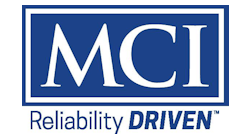For the past several years, I have had the pleasure and privilege of writing this column; this year I am feeling unusually bold, so here we go with my predictions for our industry in 2010.
Transit agencies will stabilize operationally in 2010. Many agencies have been through a tough year of fare increases, service cuts and staffing reductions. It?s fair to say that all of the low-hanging fruit has been picked. Now we are seeing riders and policy boards pushing back against further cuts. Many challenges will remain as the timing lag effect of sales-tax receipts squarely hits home. Compounding that impact is the lack of a clear direction on federal reauthorization. Barring some unforeseen miracle, it appears that 2010 could be a year of continuing resolutions. Unfortunately, we have been down these tracks before, and the inevitable result could be a slowdown in capital spending because agencies will be reluctant to commit to large multi-year contracts when the future of federal capital funding is uncertain.
The upside of reauthorization is that when a final bill is crafted, I predict we will reap a bountiful harvest of increased funding, at levels not previously enjoyed. All of the hard work we have invested in getting out the message that public transit is a green solution for transportation, urban redevelopment and energy policy will resonate with lawmakers and the administration. We have a great story to tell, and now, more than ever, it is critical that we maintain our forward momentum and reinforce this message with lawmakers.
Further to the green message, expect to see more vehicles migrate to environmentally friendly configurations. This means more than just CNG and hybrid drive systems. Electrically powered accessories and real-time vehicle health monitoring systems will allow us to work smarter, using less total energy and fewer resources. All diesel engines built in 2010 will have to comply with the latest EPA regulations. This applies to both the U.S. and Canada. Every fleet will have to add new infrastructure and procedures to bring diesel exhaust fluid (DEF) to their property.
Over the past year, transit agencies retrenched and focused a great deal of their energy on the urban core. With that service on more stable ground, look for agencies to expand their focus to address both the needs of their far-flung suburban riders as well as access to jobs within those suburbs. With that will come an increase in commuter and reverse-commuter operations.
Expect to see more transit agency CEOs moving around this year. With so many fundamental changes in our industry, different skill sets will be required to succeed. In the private sector, it would not be surprising to see more consolidation and joint ventures. Risk mitigation, access to capital and the pursuit of further efficiencies will all drive this movement.
Ultimately, with all of the challenges and opportunities above in mind, 2010 should be a year that will make us all stronger and better positioned to succeed in the future.
Biography
Michael Melaniphy is vice president of the Public Sector division of Motor Coach Industries. He is also second vice chair of the APTA Business Member Board of Governors and very active within APTA where he has leadership roles on numerous committees.




